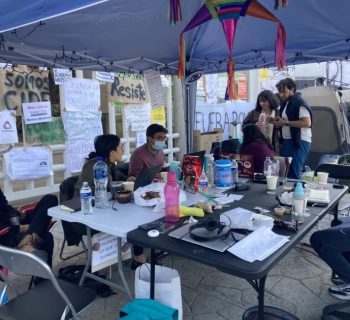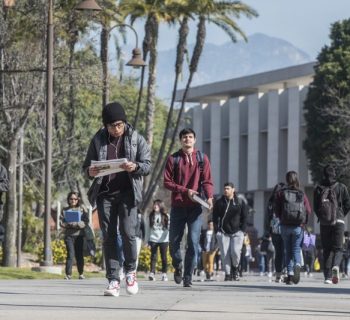By Ileana Najarro | Education Week | NOV. 17, 2023 | Photo By Julia Nikhinson
U.S. Secretary of Education Miguel Cardona has a few goals he wants to achieve as a result of millions of dollars his department has invested in the last few years into multilingual education.
“More students that graduate with the seal of biliteracy, more dual language programs, more teachers who are certified to teach bilingual education. These are some of the indicators that we’re going to look at to see if it’s finding success,” Cardona said in an interview with Education Week.
On Nov. 16, he hosted a national convening in-person and online to promote the “Being Bilingual is a Superpower” initiative led by the department’s office of English language acquisition, or OELA.
The event highlighted some of the latest work from the department that is focused on supporting English learners and broadening access to multilingual education for all students.
That initiative includes:
- Updated toolkits outlining how state and local education agencies can fulfill their legal obligation under federal civil rights laws to educate English learners and newcomer immigrant students;
- Nearly $120 million in investments “to eligible institutions of higher education and public or private entities with relevant experience and capacity to support educators of English learner students” according to a press release;
- And $33.2 million in new grants to Native Hawaiian educational and community-based organizations and entities in Hawaii aimed at supporting culture-based education programs, mental health and social-emotional well-being initiatives, and more.
Earlier this year, Cardona also announced his plans to move Title III funding back under the control of OELA. The Title III program of just under $1 billion is federal aid that school districts receive to support English learners and is currently managed under the department’s office of elementary and secondary education. Cardona told Education Week that the move is underway.
“We are making some changes here at the department of education to make sure we’re set up for success. We believe that a stronger focus on technical assistance, distribution of funding, and being able to be available at OELA a little bit more independently than it has been in the past is a step in the right direction,” he said after the event.
Conor Williams, senior fellow at The Century Foundation think tank, is among the researchers who have called for OELA to manage Title III funding to ensure English learners are symbolically and logistically better served by the department. OELA is staffed with experts in language acquisition research and policy, and would be the ones managing funding.
Williams added that Cardona’s goals for multilingual education are sound, but some nuances need to be considered. For instance, growing the number of dual language programs and the number of high school graduates with seals of biliteracy will require ensuring that English learners have equitable access to these programs.
Increasing bilingual teachers is essential
Really though, he said that increasing the number of bilingual educators should be the top goal in mind if nothing else.
“The monolingualism of American teachers is the number one variable limiting access to bilingual education, and dual language education in the country today,” Williams said.
In a new report for The Century Foundation, Williams found that “just 13 percent of U.S. teachers speak a non-English language at home, compared with around 22 percent of people in the United States, and at least 21 percent of U.S. children.”
While the department has been looking into ways it can help with efforts to grow a more diverse teacher workforce, including adding more bilingual educators to schools across the country, there is the question of whether state leaders share the vision of a multilingual future for public education.
To that, Cardona said, leaders should understand that a majority of employers now seek multilingual workers.
“It’s not surprising when 96 percent of the world’s consumers and two-thirds of its purchasing power actually reside outside the U.S. borders,” he said at the convening event. “And multilingualism is also a cognitive superpower. There’s a growing body of research that demonstrates how multilingual people develop higher creativity, problem-solving, and greater flexibility and control over decision-making.”
“There’s an economic imperative that state leaders are going to miss out on if they choose not to embrace this,” he added in the interview with Education Week. “If they don’t do it for the moral imperative, they better move with the economic imperative.”
Looking ahead, Cardona said that educators can expect to see better outreach from the department, and OELA specifically.
“They’re going to get better resources, they’re going to have somebody available to pick up the phone to support them in their efforts to increase multilingualism. It’s going to be backed by research, but you’re also going to see an affirmation of multilingualism as a strength in our country,” he said.







